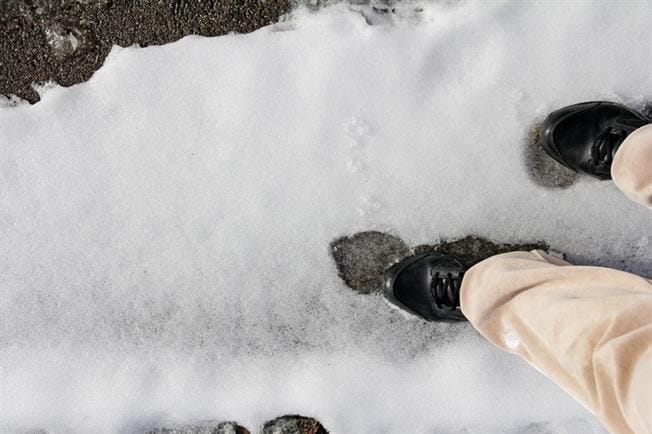Preventing slips and falls during winter weather

As we prepare to welcome winter weather, it also means preparing to welcome a season of slips and falls — a serious health risk.
"There's more to falling than just a few days of pain and some bumps and bruises. In some cases, falls can lead to broken bones, head injuries, fractures, and — in some severe cases — they can be fatal," says Janine Skahan, MSN, RN, trauma program manager at Lankenau Medical Center, part of Main Line Health.
Falls are especially dangerous for older adults, as they are more likely to have difficulty recovering from this trauma, especially those who have pre-existing medical conditions prior to falling.
So, what can you do to protect yourself and your loved ones from falls and out of the hospital this season? Martin offers some tips below.
Take a balance class
If ‘grace' isn't your middle name and you've been known to trip over your own two feet, balance classes might help. Local hospitals and community centers typically offer balance classes at little to no cost that are led by certified educators or fitness instructors.
Can't find a balance class? Try a fitness course, like gentle yoga, that focuses on light, easy movements and emphasizes balance. Main Line Health regularly offers Stretch your limits fitness classes for older adults.
Check your vision and hearing
Your eyes and ears play an important role in keeping you on your feet. Make sure you don't miss annual appointments to have your vision and hearing checked, as both of these can begin to diminish with age.
Review your medicine cabinet
When was the last time you took stock of your medicine cabinet? The next time you visit your physician, bring with you a list of all of the medications you're currently taking. Some of your medications — even those that are over-the-counter — may be causing dizziness, blurry vision or decreased alertness. If these are putting you at risk for falls, you may want to find an alternative.
Ask for a STEADI screening
Want to know if you're at risk for falls? Ask! A STEADI (stopping elderly accidents, deaths and injuries) screening is used to evaluate older adults who are at risk for a fall.
Depending on the results of your screening, your physician will follow up with education, a referral to balance classes, a fall prevention program, or another course of action. If you think you may be a candidate for a STEADI screening, talk to your physician during your next visit.
Keep your home free of fall risks
Stray soccer balls? A rug with its corner turned up? An errant dog toy? If this sounds like a hallway in your home, then you're at risk for falls. A significant percentage of falls occur at home — and not just among older adults. Busy parents and kids on the go are at risk, too.
Keep your hallways free of toys, clothing, and other items to prevent falls and use bright lighting to light hallways and rooms, particularly those with stairways. Use furniture tape to secure any rugs and prevent them from sliding. Install handrails on any stairway and, for older adults, consider grab bars in the bathroom for assistance in the shower and next to the toilet.
Wear proper footwear
Whether you're shoveling or just shuffling to the car, make sure you've got the right shoes for it. That means skipping the high heels and leather loafers. Choose winter shoes, either flat shoes or boots, with rubber soles so that you can maintain traction on icy or snowy surfaces.
Older adults who use a cane can also purchase an ice gripper tip with spikes that can be used on icy surfaces to prevent slipping.
 Content you want, delivered to your inbox
Content you want, delivered to your inbox
Want to get the latest health and wellness articles delivered right to your inbox?
Subscribe to the Well Ahead Newsletter.
